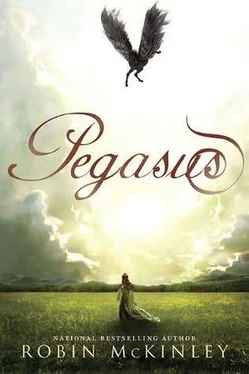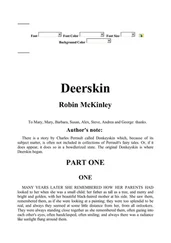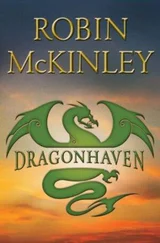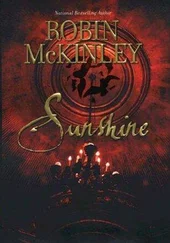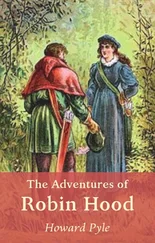But she and Ebon had had almost four years of flying together—glorious, intoxicating flying. How they had remained undiscovered Sylvi had no idea, only that it was one more thing she would not think about. Ebon could do almost anything with her lying along his back that he could without her, and while his family teased him about the muscles he had developed—his nickname was Whyhrihriha, which meant Stone-Carrier—and occasionally one of his brothers or his sister called him a cart-horse, so far as either he or Sylvi could tell, no one thought any more about it.
The sun was warm and she felt sleepy. She had often felt sleepy in the last four years. She and Ebon mostly managed to go flying at least one night a week when Ebon was at the palace; they made it more often when they could. But the demands on even the fourth children of kings can be considerable, and she and Ebon had become very popular. Two nights in a row was very unusual.
One week about six months after their binding, when she and Ebon had slipped off three times, and gone farther than they had before because Ebon’s wings were suddenly growing stronger, she fell asleep so much that Ahathin, abetted by Lucretia, Guridon and Glarfin, decided not unreasonably that she must be ill. (Lucretia had said, “If you were a little older I’d say you were sneaking out at night to meet your lover.” Sylvi held her breath: if they started keeping watch on her.... “But you don’t have quite the dazzled, fatuous look of first love.” Lucretia grinned. “And I haven’t heard of any footpages—or any of the young stablefolk—falling asleep a lot either.”) Sylvi only avoided the doctor’s prescription of bed for a week by agreeing to take the most ghastly, horrible, revolting tonic as she described it to Ebon. Nirakla made it! I thought she was my friend!
She yawned. They’re going to start threatening me with that unspeakable tonic again, she said. I can see it in Mum’s eye.
Ebon rubbed her hair with his feather-hand: mane-rubbing among pegasi was considered comforting. I’m sorry, he said. Day naps aren’t so unusual with us, any more than night flying is. My problem is trying to explain where I go on all these dark expeditions. Pegasi did not sleep alone: Ebon’s absence would be noted every time, and would need explanation every time.
It’s a good thing our parents don’ttalk to each other, said Sylvi, or somebody would have noticed I’m sleepy the days after you’ve been flying at night.
Eah, said Ebon. Dad’s pretty okay about it. But Gaaloo and Striaha and Dossaya and . . . well, several of the rest not only notice but have to talk about it.
But you had that brilliant idea, she said, shifting her position so she could rub his mane.
It was brilliant, wasn’t it? said Ebon, not quite smugly. There started off what looked like a big commotion about it, did I tell you? Because we don’t do human stuff in the Caves. But my master spoke up for my idea, saying that the land wasn’t human, that we used to live on it ourselves a long time ago before the taralians came, and then Dad started wittering about how this could strengthen the Alliance and . . . well, the rest of’em listened , he finished. Sylvi wondered what he wasn’t telling her, but she wouldn’t ask; both of them knew that each protected the other from some of the fuss their friendship produced among the grown-ups. He hurried on: And I’m making sketches, which is pretty unusual. You don’t get to make your own sketches till you’ve been an apprentice forever.
Sylvi tried not to be jealous. Ahathin and her father were pleased with Sylvi’s work on rivers, dams and bridges, but it wasn’t like it had been her own idea. Ebon wanted to be a sculptor more than anything—he’d never admitted it, but Sylvi was sure that the reason he’d tried to escape being bound was that he knew it would interfere with his chances at being accepted for apprenticeship. But Ebon had told his father after his—his and Sylvi’s—third night flight that he wanted to work toward doing something about the landscape of the palace grounds at night. My master did say I had to focus. But he didn’t tell me what I had to focus on. The funny thing is that no one has done this before.
Not so funny maybe, said Sylvi. How many sculptors are bound to humans? And it’s only you bound pegasi who ever come to the palace much. It’s like Nirakla talking to your shamans. Funny. Not funny.
Hmmmh. I think my master has only been here when your dad was crowned.
Well then. Sylvi wasn’t sure what exactly Ebon wanted to do with the night landscape they flew over, only that, if he succeeded in becoming a sculptor, he would some day begin to carve some of it into a piece of wall somewhere in the Caves; and, later still, his apprentices would help him.
He’d shown her some of his drawings and she’d had to squint to see the tiny pale lines. Pegasi drew with their feather-hands, which were only just strong enough to hold a light pen. Pegasi pens were noro reeds, which were too light and fragile for humans; one stab with a human hand and the tip broke off. She’d known not to comment on how faint the pen-strokes were, but Ebon mentioned it himself, bending one wing forward to lift her hands on its leading edge, and then stroking them with his other feather-hand. This tickled. You’ve said so many times how much humans envy us flying, he said. We envy you the strength of your hands . . . more than I can tell you.
But your drawings are so beautiful, she said, truthfully. They shimmer. They may, he said sadly. But I would give anything to be able to make big black marks. Like you do just writing your name.
Ebon saw her making her big black marks because sometimes they studied together, she with her books and notebooks and diagrams of dams, he making a curious almost humming noise which was saying over his lessons. Sometimes he did apprentice work with his hands, which was usually accompanied by a different, fainter but more complex sort of humming. Ahathin presided over these occasions—it had been Ahathin’s idea to allow them to work together: “I do not see that it is much different from Lrrianay attending court with your father, or Thowara accompanying Danacor on convoy or survey,” he said. Ahathin did not tell them about his conversation with either king, but permission had been granted.
The pegasi had very little written language— We’ve got some really old scrolls and some of the stuff in the Caves is more like letters than like pictures —but a great deal of history, tale and song was passed on orally. Every pegasus child memorised the treaty, for example. Old Gandam never used one word when three would do. Hunh. They also had to memorise certain scenes in the Caves— When they’re doing stuff for record, everything means something. You can pretty much read what a sovereign’s reign has been like by the plaits in their mane and what they’ve got round their neck and the way whoever’s near them is standing. If there’s a rearing shaman, uh-oh.
And sometimes he brought a tiny piece of wood or stone that he spent hours polishing, which (he said) was a sculptor technique: One of the nicknames for sculptor apprentices is Shiner. Or Polishhead.
These tiny scraps of matter looked—and felt—like jewels by the time he was finished with them; even when she watched him using a variety of bits of cloth (both the cloths and the fragments he used them on he carried in a little bag around his neck), it had only looked like someone polishing something: a pegasus someone, lying down, balancing the shining atom between his folded-under knees, polishing away with a series of cloths in his feather-hands, his pinions trailing (carefully) through the grass or on the floor under his belly. Until he decided it was finished, and let her look at it.
Читать дальше
